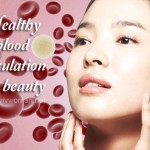
10 Triggers For Pigmentation You May Not Know About
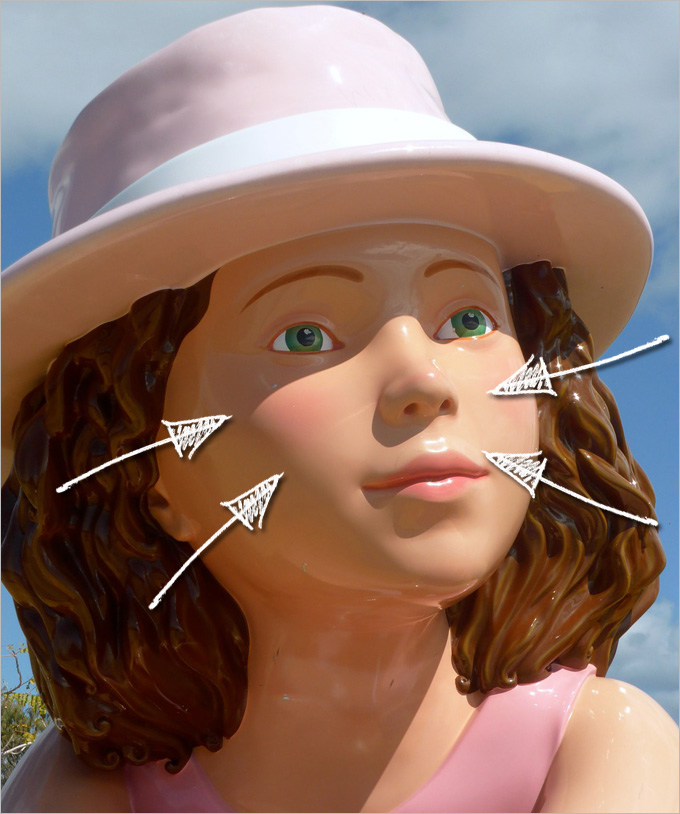
Have you ever wondered why you still get pigmentation on your skin even though you’ve been avoiding the sun like a plague? Perhaps you’re thinking your sunscreen is useless? Well, while excessive exposure to sunlight is one of the main causes for dark spots on the skin, there are many other factors that can contribute to skin pigmentation. Here, I show you 10 triggers you may not be aware of:
1. Acne
Some of you may have realized by now that your acne marks can become a permanent pigmented spot. This is referred to as post-inflammatory hyperpigmentation, which appears as flat spots of discolouration. Besides acne, other causes for post-inflammatory hyperpigmentation include atopic dermatitis or psoriasis. Even injuries caused by dermabrasion, chemical peels or laser-therapies can trigger skin pigmentation. While all skin types can get post-inflammatory hyperpigmentation, it is more prevalent in darker tones of skin (source).
How to avoid: If you have acne issues, be very careful how you handle your skin. This is the main reason why you’re asked not to squeeze or aggravate your acne. Some gentle exfoliation after your acne recovery will aid in minimizing post-inflammatory hyperpigmentation.
2. Heat from sauna and cooking
It’s not only the scorching sun that’ll give you pigmentation. Heat from fire, cooking and sauna are culprits too—basically anything that stimulates the pigment cells. According to Dermatologist Cheryl Lee Eberting, heat can worsen one’s melasma. Dermatologic Surgeon Sabrina Fabi also indicated that a study they did that skin browning was intimately associated with underlying blood vessels that dilate and get worse with heat.(source).
How to avoid: So avoid exposing your face to anything of high heat…even that innocuous hairdryer! Keep a distance away from the stove fire when you’re cooking. Or turn down the fire to a smaller flame if it’s possible.
3. Parabens
Many readings suggest that parabens are estrogenic but what caught my attention was that studies (source) indicate that methylparaben applied on the skin reacts with UVB leading to increase skin aging and DNA damage. These results indicate that methylparaben may have harmful effects on human skin when exposed to sunlight. I’ll probably get a lot of flaks for this but do note that I am citing a credible study. You can say the results are inconclusive and speculative but that makes any refute against it equally inconclusive and speculative.
How to avoid: For someone prone to pigmentation, I’ll say it’s better to use products without parabens.
4. Chemical sunscreens
I wrote about the possibility of chemical sunscreen causing hyperpigmentation. In the entry, I mentioned that while the chemical sunscreen agents absorbed into the skin surface may prevent sunburn, they generally do it by absorbing UV rays in sunlight and dispersing the energy/heat into the surrounding tissue, which in turn can stimulate melanin production (as the skin’s heat sensors signal that it is being attacked). So in essence, the process of absorbing the rays and dispersing the energy can still trigger hyperpigmentation in the skin.
In addition, many sunscreens contain chemicals that are said to be estrogenic and that cause hormonal imbalance which in turn can lead to abnormal melanin production. This is why some pregnant women suffer from melasma as they experience increased estrogen. And you may like to know that lab tests have shown that Benzophenone (benzophenone-3), Homosalate and Octy-methoxycinnamate (Octinoxate) exhibit estrogenic activity (source). Moreover, there are those parabens said to be estrogenic found in chemical sunscreens although that topic remains contentious.
How to avoid: You need to know what active ingredients go into your chemical sunscreen. Otherwise, go for mineral sunscreen with high zinc oxide content.
5. Poor blood circulation
Poor blood circulation often results in a lack of oxygen in the blood and hence, this can also cause skin pigmentation, dark spots or blotchy complexion. Logically, an improved blood circulation could prevent this.
How to avoid: Improve your blood circulation by exercising more. You can also go for more massages to stimulate the blood flow.

6. Lack of sleep
Lack of sleep is a major contributor to pigmentation because it can wreak havoc at different levels. One, it causes poor blood circulation and this results in a lack of oxygen in the blood and hence, this can also cause skin pigmentation, dark spots or blotchy complexion. Next, sleep deprivation can increase stress hormones that causes skin pigmentation. One such hormone I read about is the adrenocorticotropic hormone, which causes an increase in skin pigmentation (source). And according to a report published at NCBI, adrenocorticotropic hormone released by stress may activate tyrosinase in melanocytes, resulting in the augmentation of ultraviolet-induced pigmentation.
How to avoid: The answer is obviously to sleep more in the night as when you do so, your body produces more melatonin, which is a natural hormone made by your body’s pineal gland. Melatonin does several things for us and some researchers believe that melatonin is also able to suppress ultraviolet (UV)-induced damage to skin cells and shows strong antioxidant activity in UV exposed cells (source). This means that sleeping earlier at night will encourage more melatonin production.
7. Hormonal changes
Abnormal levels in estrogen and progesterone are major culprits of pigmentation. Heard of melasma? This may be caused by taking birth control pills, pregnancy, and illnesses. Even some foods can cause this problem—examples include soy and flax which are packed with estrogen. I found out that excessive consumption of coffee as well as food microwaved in plastic containers are contributors too.
How to avoid: Reduce consumption of anything that can trigger hormonal imbalance as far as possible.
8. Menstruation cycle
Not only is our skin vulnerable to UV radiation during PMS, we should avoid sun exposure as far as possible ONE WEEK prior to our menses to avoid developing skin pigmentation. This is because our female hormonal activity of estrogen and/or progesterone is causing melanocytes or the pigment-producing cells to produce and deposit excess pigments. Interestingly, I found a study that supports that the skin of women is more sensitive to ultra-violent light in the premenstrual week. From the study, about half the women questioned had some increase in skin pigmentation, which was noted in every case in the latter days of the menstrual cycle and in some cases during menstruation also (source).
How to avoid: So ladies who are particular about developing skin pigmentation may want to avoid heading out for outdoor activities or adventurous trips a week prior to your menses. And if you really have to head out, then remember to slather more sunscreen, put on your sunnies plus hat, and keep a lookout for more trees!
9. Cosmetics laden with heavy metals
Heavy metals produce increased pigmentation in part from deposition of metal particles and in part from an increase in epidermal melanin production. The antimalarials may bind to melanin. lead, bismuth, mercury, silver, arsenic and gold (source). When I found out about this, I was so thankful that I didn’t continue to consume colloidal silver as it can apparently cause skin discoloration (source). I’m also thinking twice about applying products that contains gold flakes.
How to avoid: Read the ingredient list of what you use and keep a lookout for potentially offensive ingredients.
10. Stress
According to a study, women who felt much more stress related to their life situation and were characterized by stronger skin pigmentation than the examined men (source).
How to avoid: Even though it’s impossible for avoid stress, you can try to minimize through lifestyle changes.
So which trigger speaks to you most, assuming you have pigmentation issues? Personally, I think sun damage over the years plus these have contributed to mine. Although I’ve been trying to resolve this skin concern for the longest time, I haven’t achieved a lot of success. But I’m not giving up. One day, I’ll be able to show you a successful way. Till then, have a nice day! (#k8SjZc9Dxk_#k8SjZc9Dxk)
Comments
Leave a Reply
You must be logged in to post a comment.

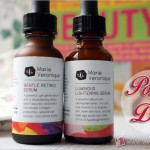












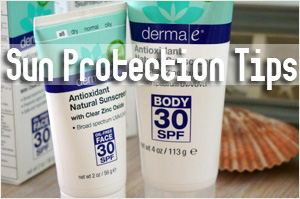
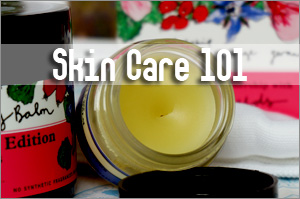
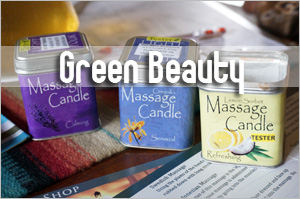
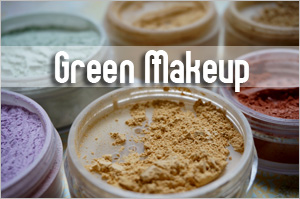
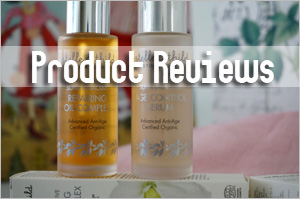

You made great points about chemical laden products and stress.
I wanted to share with you this site that I came across that teaches about how simple life changing tips can help clear acne out and give clear skin.
This is a great article! I’m very surprised to know that high heat can cause hyperpigmentation as well. What about hot spring baths then? Anyway, I’m someone who scars VERY easily whether or not I pick at my spots. I’m never diligent with sunscreen all these years, but now I’m starting to make sure I wear it more often. ?
Ru last post is: Just Natural Thicker Hair shampoo & Vinegar rinse cleanser
If the heat is equivalent to that of a sauna, then it’s best not to indulge too frequently especially if your skin is prone to pigmentation.
There are various reasons for pigmentation and various products also for curing them.
Thank you for your post! I didn’t know that high heat or menstruation could cause or increase hyperpigmentation. It’s impressive!
My skin is fair and bright but sometimes I got few acne spots and then it results dark red scars. I’m using exfoliating lotion and serum with lactic acid to erase them, it’s wonderful ?
Laura
French beauty blogger
Yes, exfoliating can help to eradicate acne scars.
Thanks for the post.I am an indian with wheatish skin tone and i had fractional Co2 laser on 27 march 15 on my face to treat acne scars but it had worsen my skin by leaving black patches on my face.PLease help me by guiding.doctor has prescribed me hydroquinone cream.plz tell me how much time it will take to heal? What should be my diet and what should i avoid.plz guide me. Any other suggestion is welcomed.
Are the patches a result of the treatment and hence temporary? If so, just use the cream for the duration. Hydroquinone is not the safest product but it’s okay to use temporarily if the doctor has prescribed it to you.
Lovely article. I had a flawless skin and being a north Indian I had early hair greying. I would colour my hair with branded products and after almost 10 years of colouring of my hair, I got massive hyper pigmentation on my face and neck. The ppd content of hair dye with my careless attitude to skin care gave me these dark pigments. Have been struggling for last two years but the positive change is less. Do you have any suggestions pls? I use sunscreens and I have become scared of the sun. I put makeup too now as I have no choice. Please guide
Have you tried consulting a dermatologist?
Hi there! buy diflucan pills online good website http://diflucanfluconazole.com
Amazing eyebrows are the easiest, most important thing you can do to make yourself look and feel more gorgeous.